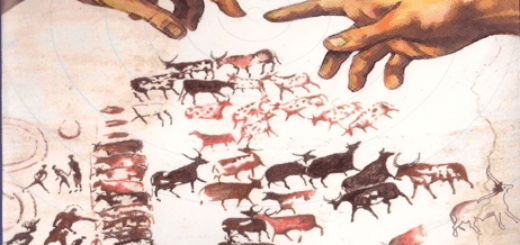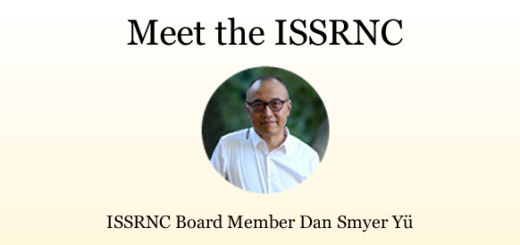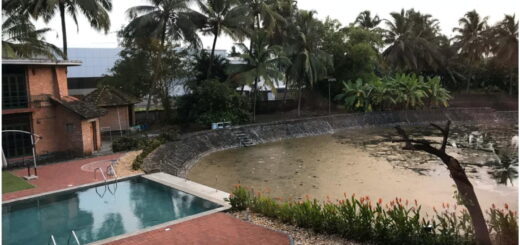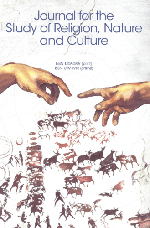Lisa Sideris on Religion, Environmental Science, and her 2020 Gifford Lecture
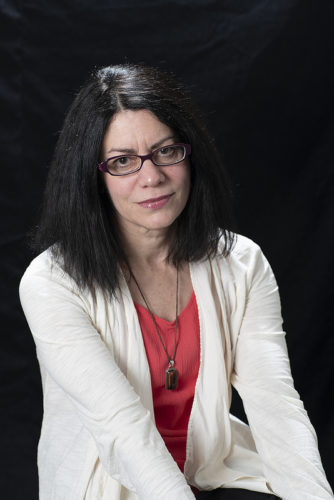
Lisa Sideris, Professor of Religious Studies
The year 2020 will mark the bicentenary of Adam Lord Gifford in whose name the prominent Gifford Lecture series was set up in the late nineteenth century. To mark this occasion the University of Aberdeen is organizing a series of six lectures to commemorate the event during the 2020-21 academic year. It is a sign of her international stature that Lisa Sideris, Professor of Religious Studies at Indiana University-Bloomington, was selected to be one of the speakers in this prestigious series. She has been an active member of the ISSRNC, and is currently on the editorial board of the Journal. She was interviewed the beginning of September by her colleague David Haberman.
David:
Thank you for agreeing to be interviewed about your upcoming Gifford Lecture. This is quite an honor for which the board members of the ISSRNC extend a very loud “Congratulations!” to you.
Lisa:
Thanks! It was definitely a pleasant surprise.
David:
Although Lord Gifford had an interest in religion and science, I can’t imagine he ever envisaged something like climate change or the Anthropocene, or really, any of the other environmental issues you write about. Let’s begin with a general question: What do you envision speaking on for your Gifford Lecture and how might it tie into the “Gifford legacy”?
Lisa:
The Gifford Lectures were established to explore “natural theology” and there’s a lot that falls under that category when theology is interpreted broadly. They’ve often featured scholars who write about human nature, for example. My own lecture seems so far in the future that I hate to commit right now, but I suspect that I’ll talk in some way about how “environmental” narratives—the Anthropocene, climate change prophecies, etc.—function religiously, that is, function as stories that perform a kind of theological anthropology, diagnosing human nature, prognosticating about the future on the broadest possible scale. As you know, I’m wary of these “big stories,” but more importantly I think that in orienting ourselves to the global environmental crisis, or even to label it a crisis at all, involves us in a project that is in the broadest sense theological. Or maybe: in order to think about how we ought to respond, we need to first recognize that we—including scientists who engage with the Anthropocene—are doing a kind of theology.
David:
Wow! Tell me more about that. How is the global environmental crisis a theological project? And for scientists? I can’t image them using the word theological in describing their work.
Lisa:
Well, here’s one small piece of it. I’ve become very interested in an image of “the human” that appears again and again across a whole range of literatures on the Anthropocene, astrobiology, geo-engineering or de-extinction proposals, where humans are cast as a kind of world-making or world-shaping creature par excellence. One way this idea gets clothed in contemporary science is in the concept of niche construction that has become very popular among some scientists. On this view, other organisms shape their environments (beavers and earthworms are common examples) but the claim is that humans do this in ways that are “exceptional” and “unprecedented,” both in terms of sheer scale—like the whole planet!—and in terms of the uniquely self-conscious way in which we shape the environment. There’s an investment here in human distinctiveness or exceptionalism. So this is billed as a “new,” optimistic story of the human as the exceptionally creative world-making species. I’m suspicious of this, not only because of the human chauvinism it entails but because it too easily ratifies behaviors that created the environmental crisis in the first place. Of course, the scientists who write this way wouldn’t call what they’re doing theology, but it sure looks that way.
David:
I get the “anthropological” – human exceptionalism, etc. – in what you are saying, but could you help me better understand what you mean by the “theological” dimension in this.
Lisa:
I guess I’d say that the work I’ve just described is often doing theology in the worst way—that is, in the most unimaginative and problematic ways. It’s not posing a question about the human, but presenting a definitive answer, with the supposed imprimatur of science, and couched in a narrative that’s heralded as new, but that’s almost always derivative of narratives about the human that have been around for ages and that, frankly, have contributed to so many problems we face. It’s an authoritative discourse. That’s why it’s so important for religion scholars to analyze and question these stories about the human. Of course, this suggests that there is a better way to do “theology” (again, broadly construed). That’s what I’m trying to think through. Maybe wonder is key to this “better way” because wonder is really about questioning, not answering.
David:
Thank you so much Lisa! In closing, I’m wondering if you could say something about how you see your work in relation to the interests and activities of the ISSRNC. And what advice you might have to offer younger scholars entering into this field.
Lisa:
I’ve become much more aware recently of the places where religion is hiding within discourse about science or technology. My recent book, Consecrating Science looks at wonder as functioning (problematically) to recast science as an all-purpose religion, for example. ISSRNC and the Journal for the Study of Religion, Nature, and Culture created a space for interdisciplinary conversations about religion, science, social science, the environment, etc. that were missing or underdeveloped in religious studies. Not only did it encourage thinking about religion outside of familiar traditions and definitions, but I think the ISSRNC and the Journal issued a kind of challenge to the field to engage the religion/ecology/environment nexus much more critically and not in just feel-good ways. My own work has been helped a lot by having these venues where I could argue positions that were maybe contentious or unpopular.
As far as advising young scholars: follow your interests wherever they lead you. Most of the people I know who do really interesting interdisciplinary work took a while to get where they are, because they didn’t follow a direct path, and they didn’t always know where their interests were taking them. Also beware of trendiness in academia. And question authority. I don’t mean gratuitously or obnoxiously. But keep a healthy skepticism about “established” ideas and scholars in the field (including the foregoing advice!).

